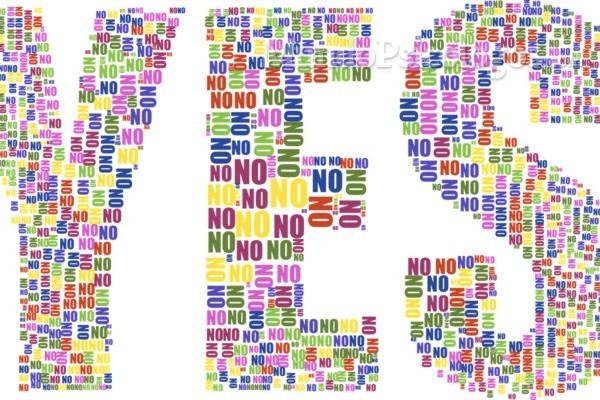How many times have you found yourself in an unwanted commitment because you didn’t know how to say no? Don’t worry, you’re not the only person this has happened to.

How many times have you found yourself in an unwanted commitment because you didn’t know how to say no? Don’t worry, you are not the only person to whom this has happened and sometimes we simply feel bad when thinking about giving another a negative response to a request.
Being generous is very good, but we cannot say “yes” to everyone who asks us for a favor. Knowing how to say ‘no’ and establishing our own personal limits may seem like a simple task, but the truth is that it is not. However, learning to do it is the key to the success of our interpersonal relationships.
With our friends, family and partner, and even more so at work, it is important to make clear what we are willing to do and what we are not, so that others can know our limits and act accordingly. That is why the absence of this skill can bring with it important personal and interpersonal problems.
Why is it so hard to say no?
Being a skill, it is a learned behavior, although it is true that there are certain personality characteristics that can facilitate this learning. For example, extroverted individuals who like to interact with many people tend to acquire this skill more easily than those who are introverted.
But, leaving personality characteristics aside, the main reasons that can influence a person to adopt this behavior are:
– High social desirability: On many occasions they seek to please others, so they say yes or allow their own personal rights to be violated because they believe that is what is expected of them.
– Ease of succumbing to pressure from another person or group: As a consequence of the above, they end up doing what other people want.
– Lack of assertiveness: They are unable to adequately express what they think. Therefore, even if they think they should say no, they do not dare to do so or, when they do, they are not convincing.
– Previous negative experiences: You may have at some point tried to say no, or set your boundaries, and been responded to in an inappropriate way or suffered significant negative consequences. Therefore, from these experiences they can learn to “say yes” to avoid the repercussions that their refusal could have.
– Low self-esteem: In many cases it is the cause and in many others it is also a consequence, since people who do not know how to say no feel inferior to others for not being able to establish limits with respect to them.
– Fear of rejection or negative evaluation: For them it is important that others accept them and not evaluate them negatively. They believe that if they agree with everything that the other proposes, they will have less chance of being rejected and, on the contrary, they will be “more loved” and will be accepted easily.
– Fear of the consequences they imagine their refusal could have Sometimes they do not fear the rejection of others so much as the fact that their refusal implies certain consequences; for example, a dismissal.
They can be summarized in 4:
- Need for approval.
- Guilty feeling.
- Fear of rejection
- Fear of criticism








